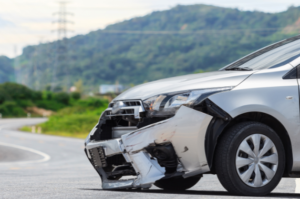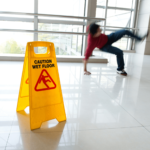
There are two primary reasons why it is essential to avoid making assumptions before speaking to a lawyer in the wake of sustaining accident-related harm. First, it is often tough to correctly discern what has caused an accident immediately after the accident has occurred. There may be “invisible” factors at play that cannot be instantly identified. Too often, people assume that they are totally to blame for some injurious circumstance when, in reality, some other influence(s) contributed to the source(s) of their harm.
Second, it’s essential to understand that even if you were partially to blame for what happened to you, you might remain legally entitled to compensation from others (individuals, companies, or even government agencies) that are also partially responsible for what happened to you. If you make assumptions without exploring your legal options, you may miss out on considerable compensation you are rightfully owed.
California Broadly Protects The Rights Of Injury Victims
California is one of the few states classified as a pure comparative negligence state. In California, this is an incredibly fortunate reality for those with grounds to file a personal injury lawsuit, car accident, premises liability, or otherwise. The legal theory of pure comparative negligence insists that injury victims remain empowered to sue others for damages, even if they were partially to blame for their injurious circumstances, provided that the others named as defendants also directly contributed to the causes of their harm.
This approach stands in contrast to those employed by many other states, which either don’t allow injury victims to recover compensation if they are partially to blame for their harm or only allow victims to seek compensation if they are less than 50% at fault. California will enable victims to seek compensation against other legally liable parties even if the victims themselves are 99% to blame for their harm.
With that said, it isn’t always smart to file a lawsuit against another party – and to incur legal fees associated with this effort – if a victim is almost 100% at fault for their harm. When discussing your case and the potential value of the compensation you may be entitled to, we’ll be straight with you about whether we believe that filing legal action is worth your time and effort under the circumstances.
Do You Have Grounds Upon Which To File Legal Action?
You can sue another individual, a company, or even a government agency if they can be held legally liable for contributing to the causes of your harm, even if you were also partially to blame. But how do you know if another party is liable for contributing to your harm?
Essentially, injury victims are in a position to sue others for damages if their contributions to the cause of harm in question resulted from reckless, negligent, or intentionally dangerous conduct. For example, say that you were distracted while answering a phone call when your car collided with another. You were partially to blame for the collision because if you hadn’t been answering a phone call, you would have been able to stop faster, and the crash would not have been quite as severe. However, because the other car driver was drunk at the time of impact and briefly fell asleep at the wheel, they can be held liable for the lion’s share of the fault for the accident in question.
In the example above, suppose the other driver is deemed 85% at fault, and you are deemed 15% at fault. If the total value of the harm you suffered is $100,000, you can seek $85,000 from the other driver, as your portion of the fault reduces your ability to collect 15% of the total value of your harm.
If Your Accident Was Work-Related
Note that if you’re eligible for workers’ compensation benefits and your harm was work-related, it won’t matter if you were partially to blame for what happened to you. Unlike personal injury lawsuits, the workers’ compensation system isn’t fault-based. As a result, you’ll remain entitled to the benefits you’re owed. Provided that you weren’t picking a fight, trying to get hurt, or under the influence when you sustained work-related injuries, you should be entitled to worker’s comp benefits.
Schedule A Free Consultation With A California Personal Injury Lawyer Today To Clarify Your Options
You should avoid making assumptions about the strengths or weaknesses of your case before speaking with an attorney. As a California injury victim, you remain empowered to seek personal injury damages against other responsible parties who were also to blame for what happened to you – provided that their negligence, recklessness, or intentionally dangerous conduct directly contributed to the causes of your harm. Depending upon the facts of your case, which we can thoroughly investigate and evaluate on your behalf, you may be entitled to far more compensation than you’ve initially allowed yourself to imagine.
To clarify your legal situation, including your rights and options under the law, reach out today to The Law Offices of Samer Habbas & Associates, PC. After you’ve attended a no-cost, risk-free, confidential case evaluation, you’ll be empowered to make informed choices moving forward. Connect with our firm today by calling (888) 848-5084 or contacting us online. We look forward to speaking with you.
Recent Post
-
April 15, 2024
-
April 12, 2024
-
April 9, 2024
-
April 8, 2024
-
April 8, 2024









